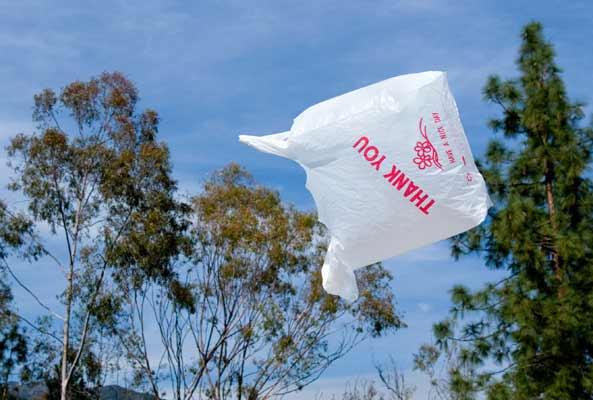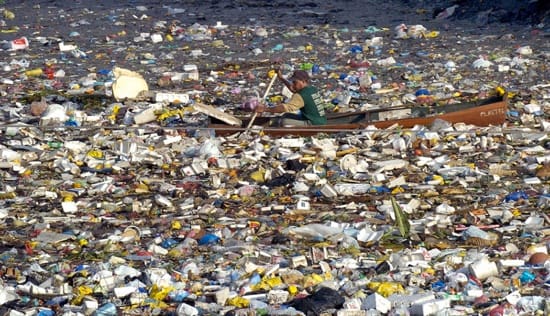Drowning in Plastic: The Impact of Single-Use Plastic


As of May 23rd 2012, Los Angeles became the largest city in the United States to put a ban on plastic grocery bags. Over the next 16 months the city will be phasing out single-use bags in favor of reusable ones. Los Angeles joins the ranks of forty-seven other California cities that have also endorsed the ban. Environmentalists and plastic bag ban advocates are hopeful that this will prompt other large cities to quickly follow suit.
So how many plastic bags do we actually use?
A common estimate for the number of plastic bags consumed each year is 500 billion, although many environmentalist organizations claim that the number is closer to 1 trillion. These estimates would require 60 to 100 million barrels of oil per year to produce.
According to the Wall Street Journal, the United States goes through roughly 100 billion plastic grocery bags every year.
China, with its vast population has, in the past, been the largest consumer of plastic bags. According to China Trade News, China consumed up to 3 billion single-use plastic bags a day, before the country took steps to ban production and free retailer use before the 2008 Olympics. While major Chinese supermarkets report that they have greatly reduced their consumption of the bags, the ban has not been nearly as successful as many had hoped with plastic bags still in wide use throughout the country.
What happens to single-use plastic bags after they are discarded?
Many of the plastic bags used end up in the ocean, as the second most common ocean refuse after cigarette butts. It has been estimated that every square mile of ocean has approximately 46,000 pieces of plastic floating in it. According to the United Nations, 10% of the plastic produced every year worldwide will end up in the ocean.
The Great Pacific Garbage Patch is a prime example of what happens to plastic when it enters the ocean. A subtropical gyre, creating a slow moving clockwise spiral of ocean currents, it is filled with millions of pounds of trash, the vast majority of which is plastic. Scientists estimate that its size is about twice that of the state of Texas, and is ever increasing. While the plastic in this huge oceanic dump will not degrade any time soon, it continues to break down into smaller and smaller pieces creating a murky wasteland of plastic.

Once in the ocean or landfills a plastic bag will take 400 to 1,000 years to degrade, and no more than 5% of the bags are ever recycled.
Besides ending up in the ocean or being buried in local landfills, a significant amount of the world’s plastic waste is shipped to China. As the largest waste importer in the world, China brings in enormous amounts of paper, plastic, and electronic waste each year. The UK has reported exporting over 200,000 tons of plastic waste to China each year. With landfill costs up, it is cheaper to send waste abroad than to dispose of it domestically. The Chinese waste industry has experienced an economic slump in recent years leaving countries like the U.S. and UK with the burden of disposing plastic waste within their borders.
The plastic bags we use on a day to day basis will never disappear in our lifetime, a fact that kind of makes you think twice before using them in the first place. With the world population ever growing the amount of non-biodegradable waste will increase as well. While banning plastic grocery bags seems a step in the right direction, will it really make a difference?



